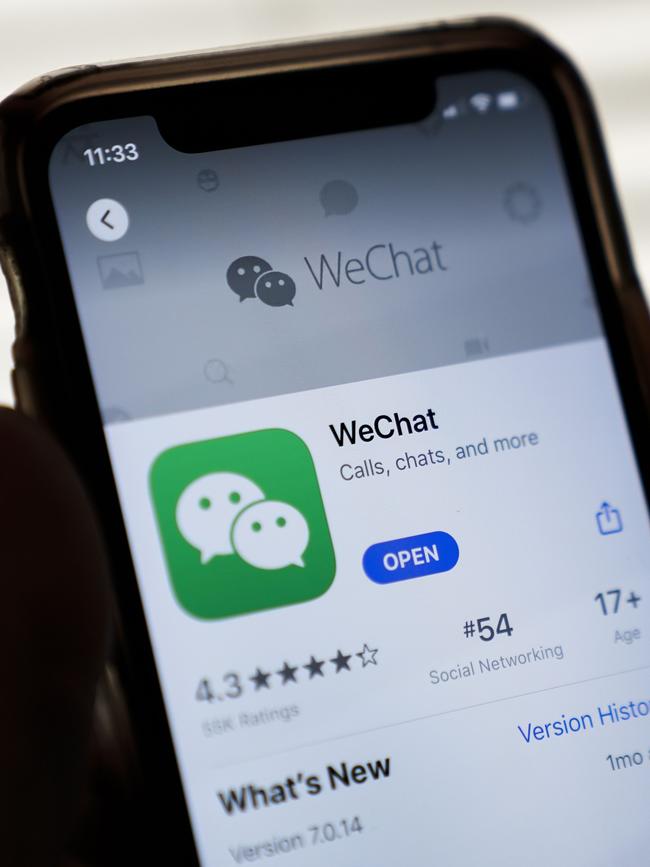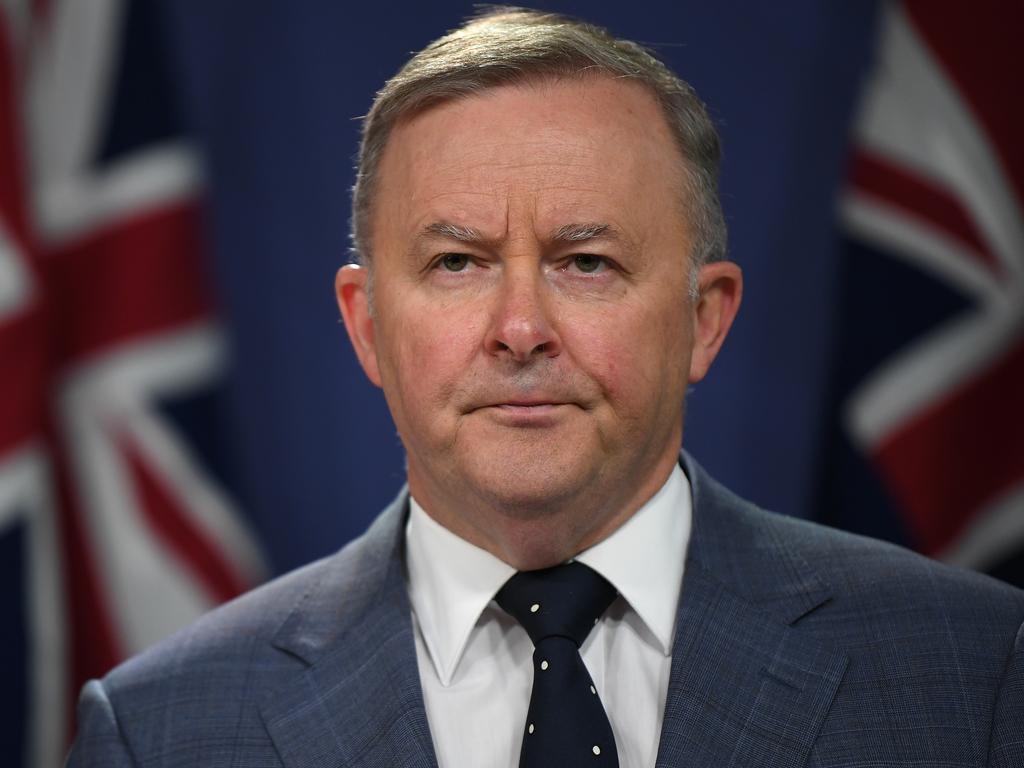Australian embassy in China posts Scott Morrison’s remarks about doctored tweet
Australia’s Beijing embassy website publishes transcripts of Scott Morrison’s demand that China remove its doctored tweet.
The Australian embassy in Beijing has published on its website Scott Morrison’s demand that China remove its doctored tweet.
After Chinese social media platform WeChat censored the Prime Minister’s post to Australian Chinese on Wednesday, the embassy said it had posted transcripts of Mr Morrison’s press conference about the offensive image on Monday.
“The Australian Embassy in Beijing are aware that a fabricated image of an Australian soldier was circulating on Weibo. Please read the Prime Minister’s comment on this matter.” the embassy’s post reads. It includes two hyperlinks to the transcripts of Mr Morrison’s in both Chinese and English.
The embassy’s website remains accessible in China, and has been able to direct Chinese to the transcripts via Weibo, the Twitter and Facebook equivalent of WeChat.
However, the move has led to a backlash from Chinese netizens, who have responded on Weibo with insults, racist remarks and violent images.
Meanwhile, as well as banning Mr Morrison’s comments, WeChat also posted articles from nationalist media accounts condemning Australia.
A video currently trending purports to show Afghan villagers accusing Australian soldiers of atrocities.
WeChat censors Morrison post
WeChat censored the PM’s post about the doctored tweet on the grounds it “involves use of content that incites, misleads, has non objective facts” or “fabricates societal/historical issues”, as the stoush between China and Australia continues apace.
On Wednesday night, people were blocked from viewing the Prime Minister’s post, and were instead met with a message which said “Unable to view this content because it violates regulations” in English before continuing in Mandarin.
“Involves the use of inciting, misleading, or contrary to objective facts, text, pictures, videos, etc.,” the WeChat warning said. “Fabricate social hot spots, distort historical events, and confuse the public.”
Mr Morrison had attempted to use WeChat, a messaging service owned by Tencent but subject to heavy Chinese Communist Party censorship, to communicate directly with the Chinese Australian diaspora.

In a WeChat post on Tuesday night, Mr Morrison paid respect to the contribution “Chinese migrants and Australians of Chinese background” had added to the country.
“The post of a false image of an Australian soldier does not diminish our respect for and appreciation of our Chinese Australian community or indeed our friendship with the people of China,” he said.
It is uncertain whether the post was blocked due to a directive from Beijing, or due to significant reader complaints.
The move by WeChat is in stark contrast to Twitter which has refused Mr Morrison’s request to remove the original offending fake image which intensified the China-Australia stoush this week, a photoshopped piece of “art” depicting a grinning Australian soldier crouching in an Afghan flag and an Australian flag and holding a knife to the throat of a child.
Twitter refused to take down the tweet from China’s foreign ministry spokesman Zhao Lijian on Tuesday, instead marking the image as “sensitive”.
WeChat has over a billion users and is widely used for messaging. The Prime Minister first joined the Chinese social messaging platform in the lead up to the 2019 election.







To join the conversation, please log in. Don't have an account? Register
Join the conversation, you are commenting as Logout